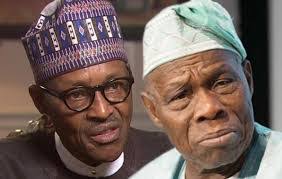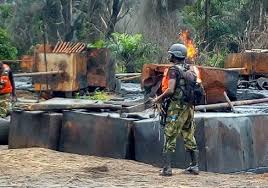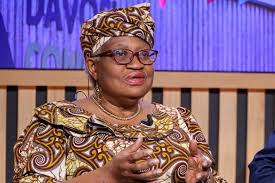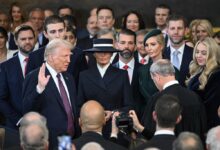How Obasanjo and Buhari embarrased Nigeria in Paris

“$6bn Mambilla power contract deal: Obasanjo, Bubari testify in Paris court”. Weekend Trust, January 25, 2025.
“In every community there is a class of people profoundly dangerous to the rest. I don’t mean the criminals. For those we have punitive sanctions. I mean the leaders. Invariably, the most dangerous people seek power.” Saul Bellow, 1915-2005. VANGUARD BOOK OF QUOTATIONS, VBQ p 124.
Nigeria must have set another undesirable record at the International Chamber of Commerce, ICC, Paris, France, “in connection with the $2.3 billion arbitration proceedings filed against Nigeria by Sunrise Power over an alleged breach of contract by the federal government.”
The panel of arbitrators must have been embarrassed for Nigeria; because, it is quite possible that they have never had testifying before them one former President on account of a nation’s alleged breach of contract. Here was Nigeria dragging in two old men, former Presidents, who got their poor country into $2.3 billion hot water.
The first question obviously is: did Obasanjo and Buhari, individually and collectively, feel embarrassed to be sitting in front of the panel of arbitrators?
Let’s face it. There are some situations in which a honourable person, not to talk of a former President, should not find himself in public. For God’s sake, this is N3.68 trillion contingent liability to which Nigeria is exposed by the two former Presidents. And, they returned, without briefing the people whose funds they were about to throw away; as if nothing happened. The truth is; a lot might have happened. If the panel delivers a verdict against Nigeria, up to $2.3 billion, Nigerian assets everywhere in the world can be seized –
including the Presidential jet.
“Every country has the government it deserves”. John de Maistre, 1753-1821.
Somebody else had warned that the people must be prepared for the punishment that results from choosing bad leaders. That, notwithstanding, is this leadership?
What have Nigerians done to deserve this sort of thing? The worst part of the whole thing lies in the fact that the two of them will get away with this act against the poor people of Nigeria.
Both of them being unrepentantly self-righteous will still continue to condemn corruption; as if what brought the nation to this dangerous situation was not ultimate corruption of administrative and legal processes under their governments. Like a lot of the problems facing us now in Nigeria, this one also had its origins in Obasanjo’s government, 1999-2007. Those old enough, as well as those with any sort of memory, would recollect that Obasanjo collected $13-16 billion with the stated intention to increase the nation’s power supply to 10,000MW per day by the time he left office in 2007.
His Minister of Power was Engineer Lyel Imoke. How and why a major contract, – worth $6 billion and expected to generate 3,050MW from a hydropower station situated at the Manbilla Plateau, Taraba State, was assigned to the Minister of State, our brother, Dr Olu Agunlove remains a mystery. Today, that behemoth is perhaps the biggest abandoned project in Nigeria; and it might soon set Nigeria back by N3.68 trillion. It has already sent us retro walking into the dark ages.
The original mess-up started between Obasanjo and Agunloye. After initially approving the contract, the ex-President, for reasons known to him, changed his mind and wanted the contract voided. Agunlove has since then been claiming that he received no instructions to stop it and went ahead to authorise Sunrise to proceed, only for the FG to stop it. You don’t have to be an authority on office procedures to realise that something must be fundamentally wrong and questionable in the way the President and Minister handled the matter. In my 52 years working in various organisations, 36 as staff reporting to superiors and sixteen as the Chief Executive Officer, CEO, I have been involved in situations in which instructions and approvals to commit organisation’s funds had later been rescinded by my superior officer.
Thank God, in my MBA course in Boston, it was drilled into our heads that whether issuing or receiving instructions to commit funds, a written memorandum must be sent and received. And, if the original decision is voided or altered, another memo must follow. Obasanjo, in an interview with The Cable in 2023, reportedly said that, “If a commission of inquiry is set up today to investigate the matter, I am ready to testify.” That, to me, is a classic case of medicine after death. All he needed to do all along to exonerate himself was to produce the written authority to proceed with the project and the second one asking Agunlove to stop it.
In one case during my career, my supervisor had instructed me, on phone, to raise a Local Purchase Order, LPO, to be issued to a company. I countered by requesting for the instruction in writing. He called to ask if I was questioning his authority. I sent another memo apologising; while stressing that I will carry out his instructions to the fullest. Six months later, the External Auditors pounced on the LPO; discovered that not only were the prices highly inflated, but, the LPO was issued to an unregistered company. As the originator of the LPO, I was the first person issued a query. A panel had been set up to look into all the questionable expenditures. My session lasted less than five minutes. I just presented the two memos between my boss and me. That was the end of the story, as far as I was concerned. My boss faced the music alone.
Given Obasanjo’s lengthy experience in government, starting with being appointed a Federal Commissioner (Minister) under Gowon to becoming Chief of General Staff, CGS, under Murtala, to Military Head of State and finally civilian President, it is shocking that orders issued on vital matters that must be obeyed by subordinates were not issued in writing. By the same token, it is alarming that Dr Agunlove could not also support his claims with written evidence.
Presidents Yar’Adua and Jonathan and their Attorney Generals and Ministers of Power committed unforgivable blunders by allowing the hot potato which Obasanjo and Agunlove left on the stove to remain there. Nigeria’s liabilities would not have been up to 25 per cent what it is now – if it was settled during those eight years.
Buhari, whose government eventually terminated the contract, had no choice over the matter. His only mistake was procrastination which escalated the possible penalty. To be quite candid, the panel of arbitrators must be shaking their heads; wondering how a nation with Nigeria’s abundant manpower could have been governed by such leaders.
Obasanjo once described late Chief Bola Ige, SAN, who served as his first Minister of Power and Steel; and failed as somebody who did not know his right hand from his left. It is doubtful if Obasanjo knew that he had hands at all and what to do with them.






